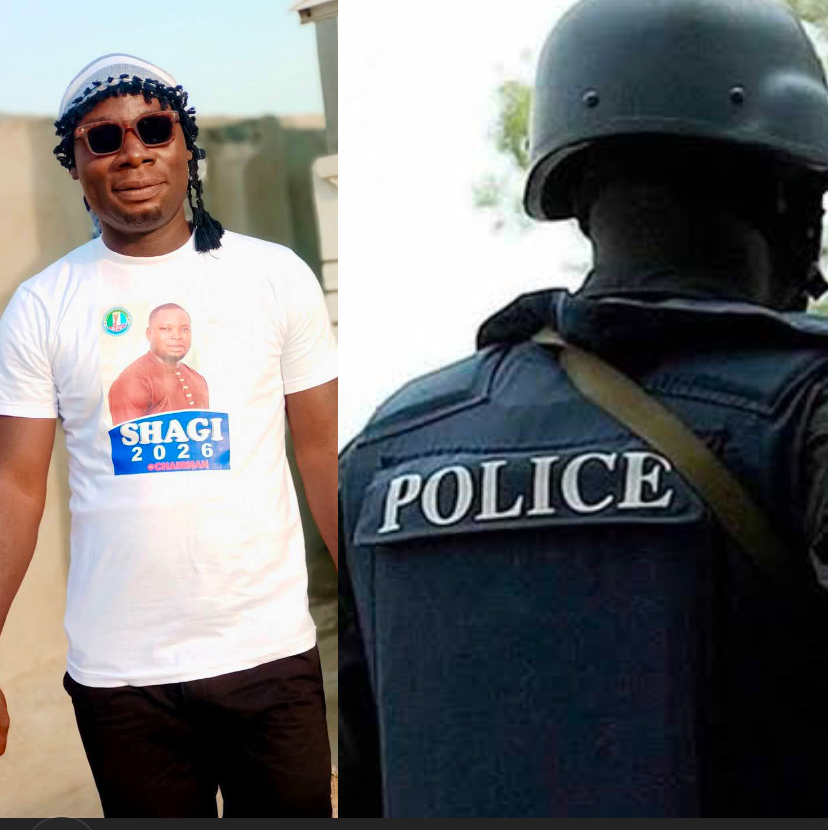
The sudden police invitation of Adamu Muhammad, widely known as Dobiza Dobiza or One Man Squad, may have ended in dialogue rather than detention. Yet, beneath the surface, the episode has pulled back the curtain on a complex web of political calculations, proxy battles, and the sharpening lines of identity politics in Gwagwalada.
Chronicles Reporters can now confirm through multiple police sources that the complaint which triggered Dobiza’s invitation did not originate from the supposed complainant, Mr. Usman Yahaya, a Fulani political actor said to be eyeing a stake in Gwagwalada’s political structure. Instead, the complaint was filed through proxies—an attempt, insiders suggest, to weaponize the police against a rising indigenous voice.
A senior police officer privy to the case explained:
“The complainant did not step into this division. Everything came by proxy, and that raised questions of credibility. The DPO weighed the matter carefully and dismissed it as lacking merit. What followed was a conversation for peace, not confrontation.”
This revelation suggests that the police division may have been tactically dragged into a political tug-of-war. It also explains why CSP Hamza Sadiq, the Divisional Police Officer of Gwagwalada, shifted the meeting into an educative dialogue. For many observers, his refusal to be used as a tool for political intimidation was as significant as Dobiza’s refusal to be silenced.
Addressing the press after the meeting, Dobiza gave his firsthand account of what transpired behind closed doors with CSP Sadiq. He was categorical in describing the professionalism of the police officer:
“To start with, I commend the DOP of Gwagwalada Police Division, CSP Hamza Sadiq, for his soft and educating words in our briefing session this afternoon in his office. I detected from his points a professional police officer who knows his job. None of his words was timid and his approach was threat-free and precise.”
Dobiza stressed that the dialogue he had with the DPO stood in sharp contrast to what the “original painter” of the complaint had wished—to silence him and others like him.
“It went far from the original painter’s wish of silencing me and likes,” he added.
Instead of intimidation, Dobiza said the meeting revealed another dimension: the structural weakness facing the police division itself. He observed that the officers lack the mobility required to effectively safeguard the community.
In a direct appeal to the Executive Chairman of Gwagwalada Area Council, Hon. Abubakar Jibrin Giri, Dobiza stated:
“I humbly write to seek for your intervention on influencing security operation of Gwagwalada Police officers. I detected that one of the challenges of Gwagwalada Police officers is insufficient mobility that will influence their exploit on immediate advancement to handle security unrest; as the case may be. They need at least 3 patrol Hilux coz the one in their disposal is nothing to write home about. Safeguarding the lives and properties of the people you represent is not an option.”
Community members who accompanied Dobiza were less diplomatic. They spoke with passion and defiance, insisting that they would resist any attempt to impose a non-indigene on them politically.
One of them declared openly to the press:
“Usman Yahaya, a Fulani man, cannot leave Kano to come and lead us in our land. That cannot happen. He should go back to Kano. If APC insists on this imposition, they should be ready to lose Gwagwalada for sure.”
This sentiment reflects a growing fear among indigenous residents—that their identity and rights are being eroded by external forces. For many, Dobiza has become the rallying point for resisting that erosion.
Far from being cowed, Dobiza emerged from the police station emboldened, carrying with him the energy of his supporters. He publicly acknowledged those who stood with him, both in person and in spirit:
“Heaven will not be pleased with me if I shy away from tendering a profound gratitude… Your selfless solidarity is successfully barged in my diary and shall not be forgotten. Let’s keep our spirit of teamwork alive, for an injury to one is an injury to all.”
The solidarity that carried him through the ordeal was a demonstration of his standing in the community and the risks his adversaries face in trying to weaken his influence.
If proxies were used to lodge the complaint, who were the real hands behind it?
Community leaders whisper names, pointing to certain political aspirants desperate to install Yahaya as a compromise candidate under the APC umbrella. But for now, no one has come forward directly. What is clear, however, is that the people of Gwagwalada are watching closely, and their patience for political imposition is thin.
What began as a police invitation has now become a test of political will, a clash between grassroots resistance and outside ambition. The attempt to silence Dobiza through proxies may have backfired, elevating him further as the uncompromising One Man Squad—a man who insists that Gwagwalada’s destiny will not be written by outsiders.